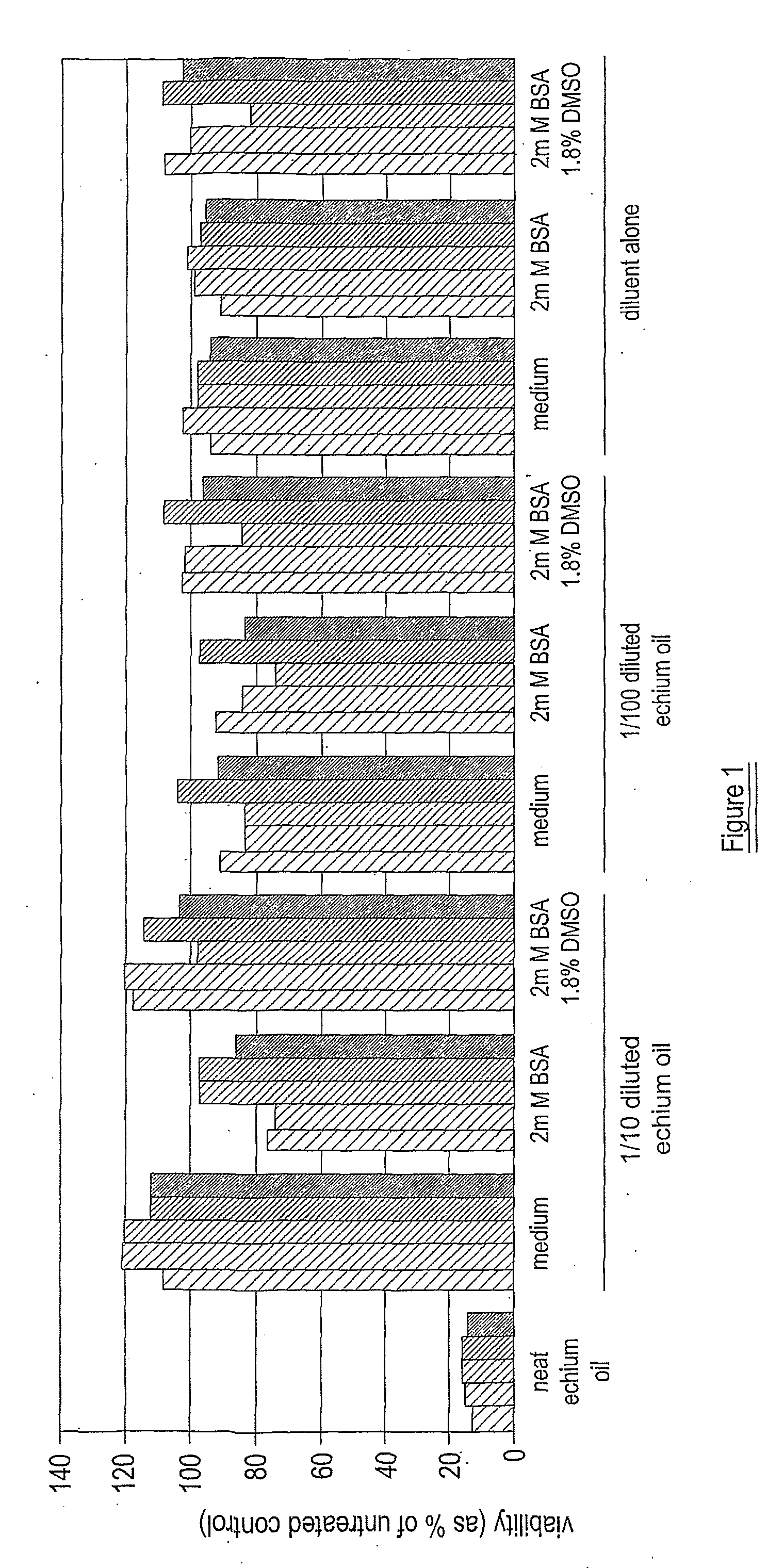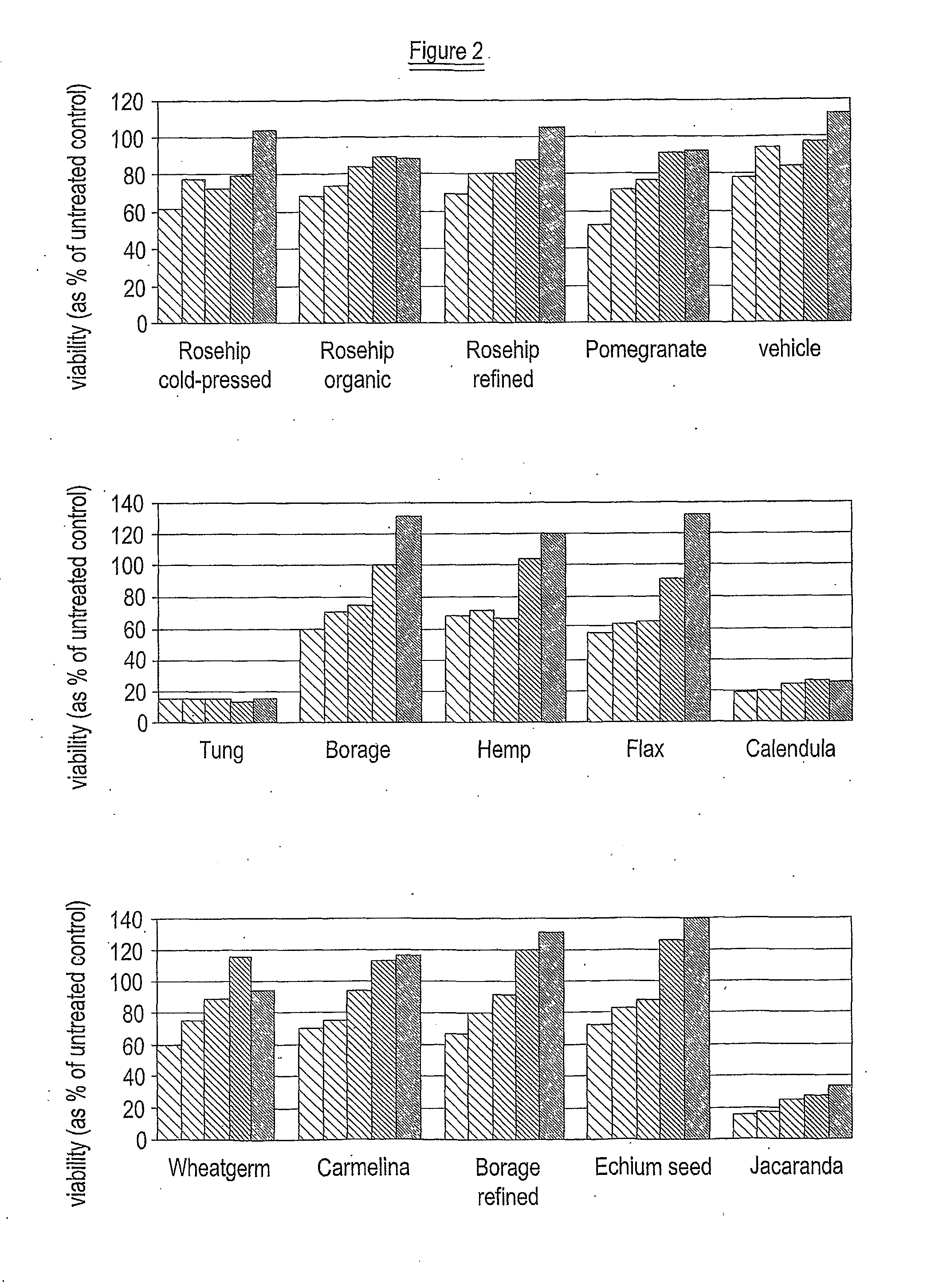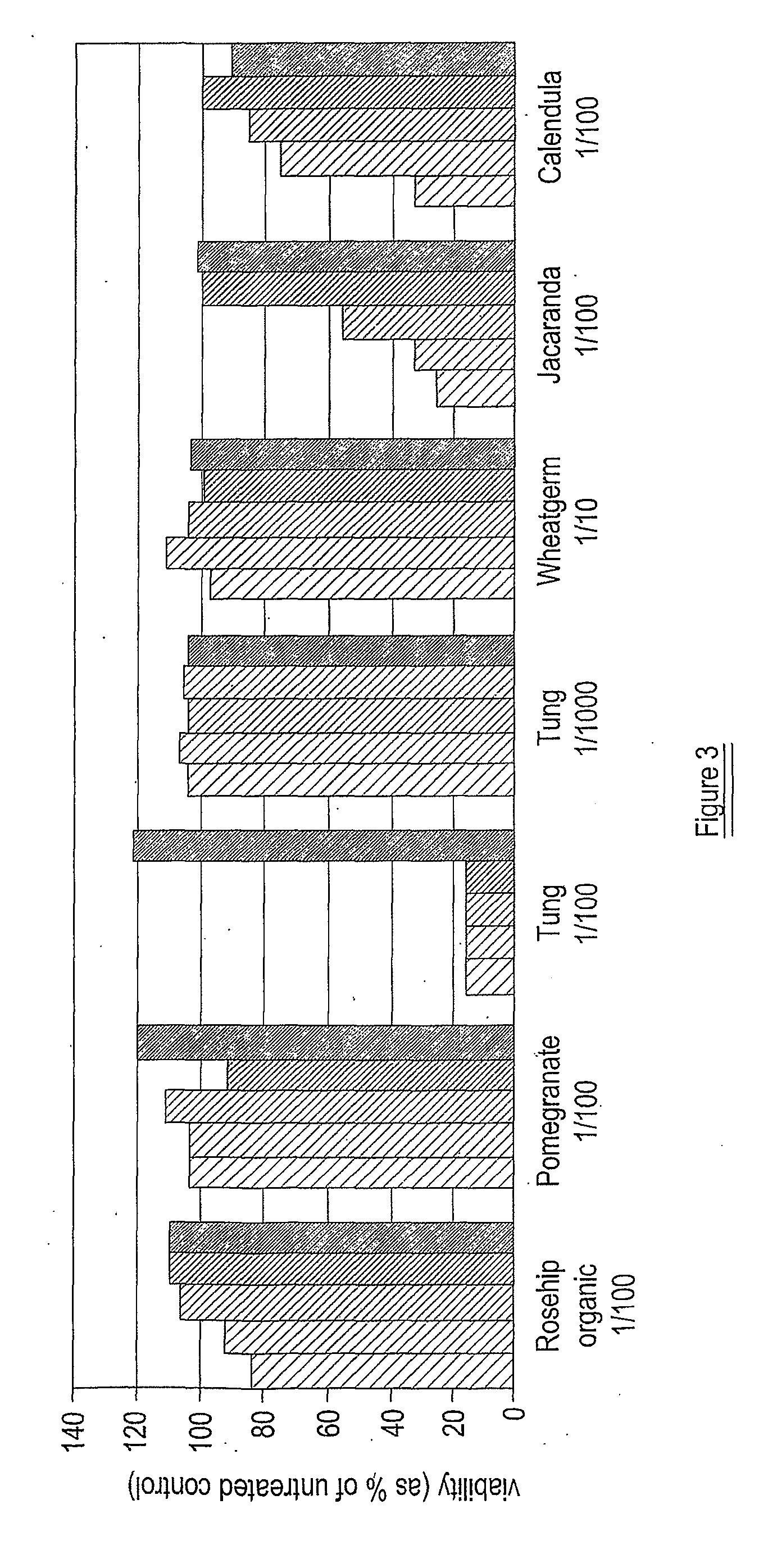Composition for accelerated production of collagen
a technology of collagen and accelerated production, applied in the field of topical skin care compositions, can solve the problems of wrinkles that accompany aging and accelerate collagen production in skin
- Summary
- Abstract
- Description
- Claims
- Application Information
AI Technical Summary
Benefits of technology
Problems solved by technology
Method used
Image
Examples
experimental examples
Example 1
An In Vitro Study to Determine the Effect of Applied Lipids on Fibroblast Collagen Synthesis
[0130]Experiments were undertaken to determine the efficacy of plant-derived lipids use in combination with echium oil in promoting collagen I synthesis in human dermal fibroblast cultures. Human dermal fibroblast cultures derived from explant cultures of human skin, following enzymatic removal of the epidermis, provide a useful model for skin toxicity screening, determining the efficacy of UV protective agents and studying agents that may modify gene / protein expression within the dermis. This study was performed in order to determine the efficacy of a range of plant-derived oils in promoting collagen I secretion by dermal fibroblasts. Secreted collagen I was assayed in pepsin digests of the cell culture medium and pepsin digests of the cell culture surface by ELISA.
[0131]Experimental Methods:
[0132]Human dermal fibroblasts (originally derived from explant cultures of normal human bre...
example 2
An Investigation of the Ability of Applied Lipids to Increase Collagen Secretion by Human Fibroblasts In Vitro
[0154]Summary
[0155]To confirm the ability of test oil and test oil combinations to enhance levels of collagen in cultures of human dermal fibroblasts.
[0156]Previously, a range of test oils were screened for cytotoxicity and their ability to increase levels of collagen in cultures of human dermal fibroblasts. In this study the test oils that had demonstrated greatest efficacy in increasing levels of measurable collagen were re-tested, including borage, refined rosehip, jacaranda and calendula oils; these oils were tested alone and in combination with the base oil, echium. Both adhered collagen and collagen in the tissue culture medium were assayed. Two sets of human dermal fibroblast cultures, derived from donor skin from two separate individuals, were used in this study.
[0157]The data obtained confirmed that the test oil / echium oil combinations increased the amount of measur...
example 3
Preliminary Report on a Study to Further Establish The Roles of CODTA's when Combined with SDA in Collagen Production in Human Skin
[0169]This example provides outline results of the effect of two test active ingredient mixes on collagen I secretion by human dermal fibroblasts. Human dermal fibroblasts (originally derived from explant cultures of normal human breast dermis) were cultured under standard conditions. Two test combinations of actives (CODTA's when combined with SDA) were initially screened for cytotoxicity before testing.
[0170]Collagen I levels were determined and are expressed as a percentage of the levels observed in samples from cultures treated with diluent (vehicle) alone.
[0171]Pepsin digests of both cell culture medium, and the cell culture surface (plate) from each treated culture well were analysed.
[0172]Jacaric Acid in combination with the Stearidonic Acid base was found to strongly induce collagen I secretion by human dermal fibroblasts under the culture condit...
PUM
 Login to View More
Login to View More Abstract
Description
Claims
Application Information
 Login to View More
Login to View More - R&D
- Intellectual Property
- Life Sciences
- Materials
- Tech Scout
- Unparalleled Data Quality
- Higher Quality Content
- 60% Fewer Hallucinations
Browse by: Latest US Patents, China's latest patents, Technical Efficacy Thesaurus, Application Domain, Technology Topic, Popular Technical Reports.
© 2025 PatSnap. All rights reserved.Legal|Privacy policy|Modern Slavery Act Transparency Statement|Sitemap|About US| Contact US: help@patsnap.com



